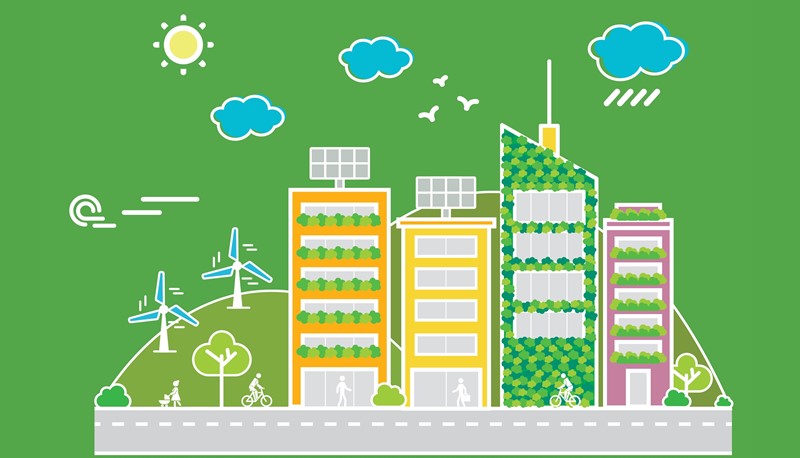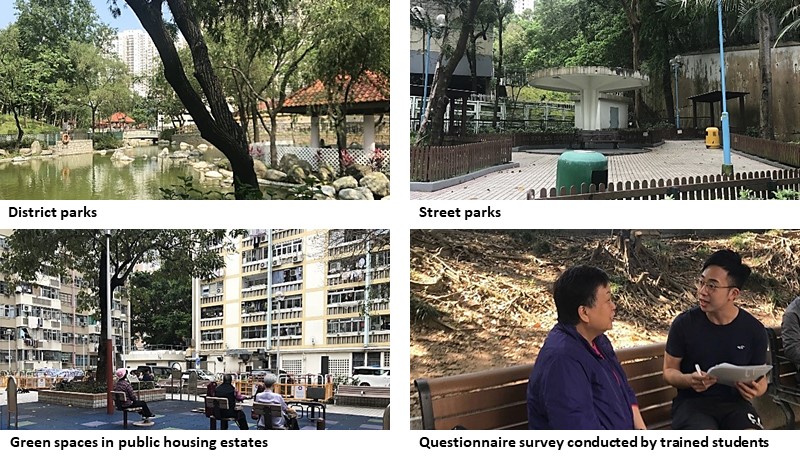
Creating smart and sustainable cities of the future

IOFC is a leading multi-disciplinary research institute in Asia with significant impacts on academic research and urban theory and practice.
Worldwide trends towards urbanisation mean that sustainable cities and communities must be at the heart of future solutions to global challenges. CUHK’s multi-disciplinary Institute of Future Cities (IOFC) envisions, researches and promotes innovative approaches for making the cities of tomorrow sustainable, prosperous and socially just.
IOFC supports global advances towards the SDGs by acting as a dynamic hub for innovative, collaborative and comparative research work. It brings together local and international researchers from a diverse range of disciplines to delve into past and present urban issues, with the aim of making vital breakthroughs in urban theory and practice.
In addition to generating world-class research, IOFC also provides a learning and teaching platform for students and professionals in Hong Kong and mainland China, bringing them up to speed on the latest theoretical and practical research innovations, encouraging them to work across disciplines and enriching their local, regional and global knowledge. More broadly, it serves as a social learning centre to educate citizens and empower communities on the vital everyday urban issues that affect their lives.

The institute serves as a dynamic hub for local and international scholars to advance research in urban theory and practice.
Cutting-edge urban research with a highly practical focus
Home to four specialist research centres and one programme, IOFC aims to support evidence-based knowledge transfer that makes a real difference to future urban policies, planning and design.
For example, IOFC’s Centre of Urban Sustainability (CoUS) focuses on urban climatic studies and their applications in climate-sensitive urban planning and design. By developing a better understanding of how the built environment affects urban climatic processes, CoUS has successfully translated its research findings into practical guidance that informs professional practice and policy decisions.
Elderly populations in Asian countries are expected to increase rapidly in the next few decades. Older adults, particularly in high-density cities, spend a considerable amount of time in urban green spaces, which are recognised by the World Health Organization as important to making neighbourhoods more age-friendly. CoUS research has built up a strong evidence base to help planners and designers create urban green spaces that are more attractive to older adults, making it easier to promote healthy ageing, enhance preventive healthcare and reduce medical burdens.

IOFC’s research sheds light on the use of urban green spaces to promote healthy ageing.
Protecting our health in an overheating world
CoUS researchers have also enhanced understanding of how the impacts of extreme hot weather caused by climate change are exacerbated in high-density cities, and how this makes the elderly particularly vulnerable. For example, one study found that hot nights pose a greater public health risk than hot days, and urban design that incorporates better air ventilation and more urban greenery can help offset this.

IOFC’s study reveals that hot nights (right) pose greater threat to public health than hot days (left) due to congested environment, poor air ventilation and the lack of green spaces.
Another study produced pioneering insights into city-dwellers’ experiences of ‘thermal comfort’ in urban settings, which have made important contributions to understanding the microclimatic effects of urban design choices on the dynamics of people’s thermal sensations over time. In high-density cities where land resources are limited, this research will help planners to carefully design outdoor spaces to take account of people’s thermal comfort needs, so that they can enjoy the urban outdoors and hence adopt more active lifestyles.
As more cities and regions worldwide experience increasing urbanisation and more frequent extreme weather conditions, IOFC’s far-sighted research work can play an important role in the promotion of sustainable cities and communities globally, as well as supporting effective climate action in urban areas.
Read more: